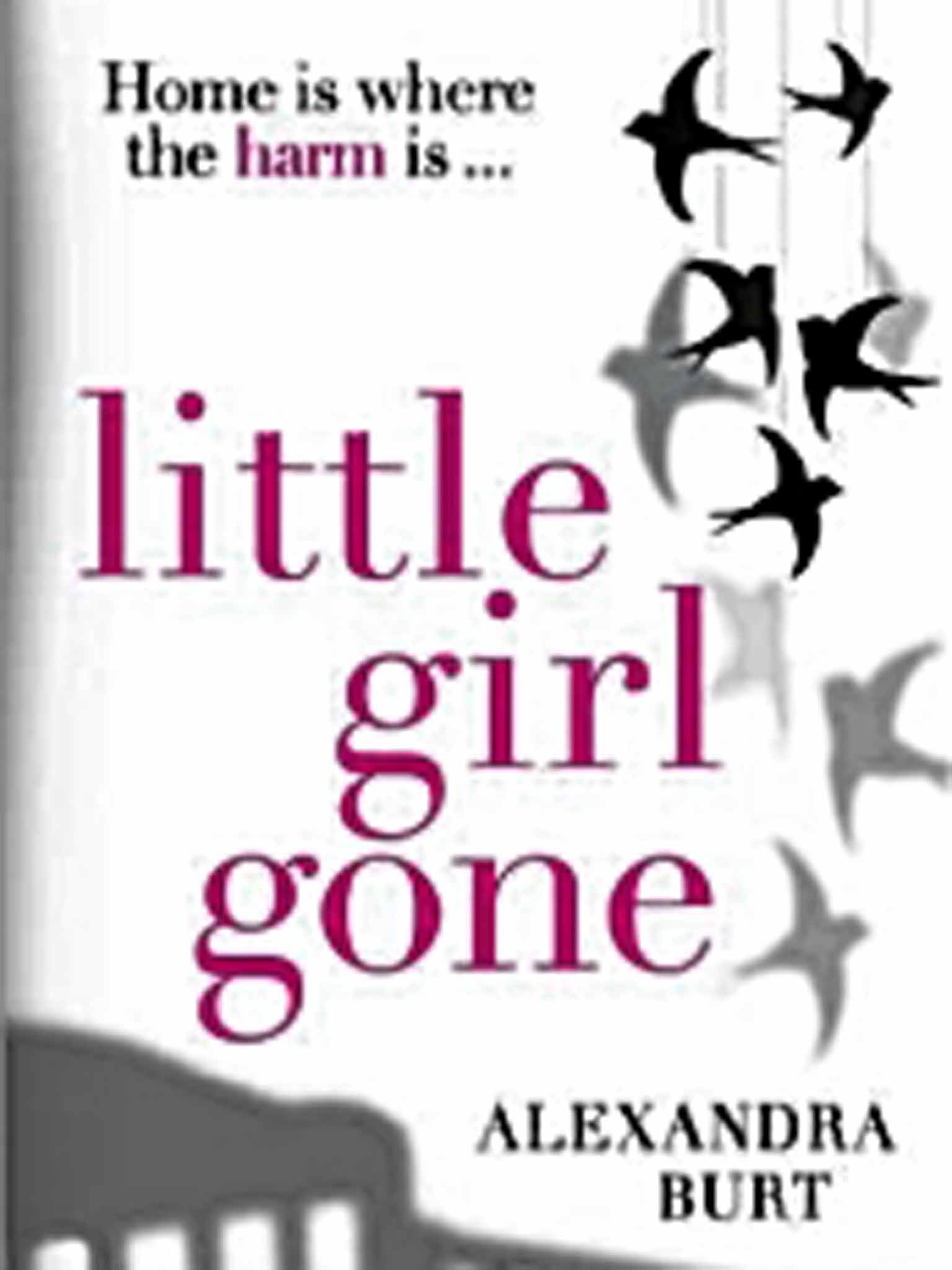Little Girl Gone, by Alexandra Burt - book review: Escapism and clichés in corny tale of Paradise lost
What starts as a vaguely believable and emotive story about a missing child transforms itself into something resembling a rejected Arnold Schwarzenegger film

When Estelle Paradise wakes up in hospital, broken and missing an ear, she can't remember anything of the accident. In fact, the only definitive thing she has to hold on to is the gut-wrenching instinct that her baby daughter is missing. For reasons beyond everyone, she didn't report the crime. But wait – this is no telenovela, this is Upstate New York and the basis for Alexandra Burt's debut novel Little Girl Gone.
The book's title is not the only similarity to last summer's bestselling drama Gone Girl; young mother Estelle is so unreliable a narrator she rivals the manipulative Amy Dunne and the story twists enough to keep the reader guessing at its outcome. What happened to baby Mia Paradise?
As with all good crime dramas, every character is a potential suspect, including amnesia inflicted mother Estelle, who struggles under the pressures of caring for her child. Then there's elusive husband Jack who can be aggressive and controlling, despite being largely absent from the situation. Not to mention prying neighbour David, who intensifies Estelle's anxieties with subtle digs at her mothering technique.
Fast-paced and gripping, the story begins well and gives promise that something clever will unfold as, bit by bit, Estelle's memories are recovered and the truth comes closer to the fore. But the plot itself is cheap and becomes increasingly less sharp towards its end, when what was once a vaguely believable and emotive story about a missing child transforms itself into something resembling a rejected Arnold Schwarzenegger film. Car chases and gun-wielding psychopaths slide uncomfortably towards a particularly trashy moment in the climax of the novel, when a villain throws out the lines: "And so we meet again… next time you visit my home without an invitation, you should be more careful". Unsurprisingly, these moments are difficult to take seriously.
But despite all of this nonsense, Little Girl Gone is a worthy read. There are themes beyond the crime drama facade that render it emotive. Broken down, it is a story of control, overpowering relationships, paranoia and postnatal depression – something which sadly gets a little overlooked towards the end.
Of course some questions are left unanswered (why, really, must our heroine be named Estelle Paradise?) and Burt certainly applies some artistic license during descriptions of Estelle's medical care and psychiatric therapy days. But the author's ability to keep the reader guessing undoubtedly make this novel difficult to put down – as cliché as that may be. But then cliché is written all over Little Girl Gone and it's a satisfying escapism none the less.
Subscribe to Independent Premium to bookmark this article
Want to bookmark your favourite articles and stories to read or reference later? Start your Independent Premium subscription today.

Join our commenting forum
Join thought-provoking conversations, follow other Independent readers and see their replies